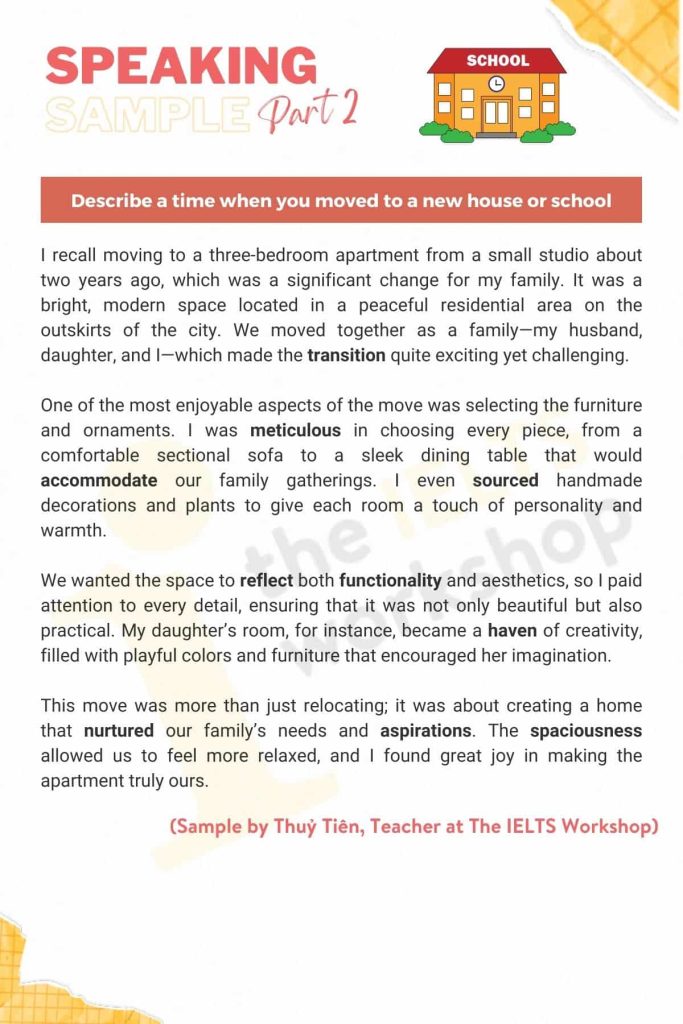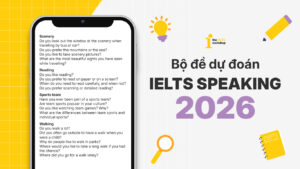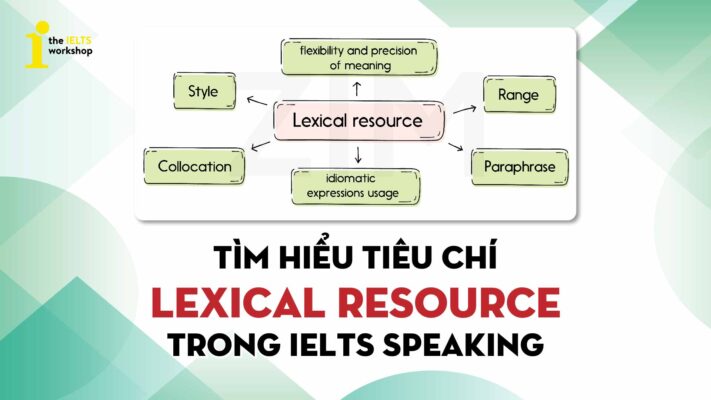Trong chuyên mục giải đề IELTS Speaking kỳ này, cùng tham khảo bài mẫu của cô Thuỷ Tiên từ The IELTS Workshop với chủ đề: “Describe a time when you moved to a new house or school”. Cùng tham khảo tự vựng và các cấu trúc ghi điểm nhé.
Part 2: Describe a time when you moved to a new house or school
Describe a time when you moved to a new house or school.
You should say:
When it was
Where you moved to
Who you moved with
And explain how you felt about it.
Dưới đây là bài mẫu cho topic “Describe a time when you moved to a new house or school”.
1. Bài mẫu (Sample)

2. Từ vựng (Vocabulary)
- Transition (n): – Sự chuyển tiếp
- Meticulous (adj): – Tỉ mỉ, kỹ càng
- Accommodate (v): – Đáp ứng, cung cấp chỗ ở
- Source (v): – Tìm nguồn, tìm kiếm
- Functionality (n): – Tính năng, sự tiện dụng
- Spaciousness (n): – Sự rộng rãi
- Reflect (v): – Phản ánh
- Nurture (v): – Nuôi dưỡng, ấp ủ
- Haven (n): – Nơi trú ẩn, không gian yên bình
- Aspiration (n): – nguyện vọng, mong muốn
Part 3
Bên cạnh Part 2, bạn hãy tham khảo thêm Part 3 cho chủ đề này nhé
Why do people move to a new home?
What problems will people face after moving to a new place?
How do people solve these problems?
Is it good to move to a new place frequently? Why?
Do you think children or adults will adapt to change more quickly?
1. Why do people move to a new home?
People often move to a new home when they seek a better quality of life, which could involve more space, a safer neighborhood, or proximity to work. This decision often reflects deeper aspirations for personal growth or family wellbeing. For instance, a family might move from a small apartment to a house with a garden, not just for the extra space but to offer their children a more enriching environment.
- Proximity (n) – Sự gần gũi, khoảng cách gần
- Enrich (v) – Làm phong phú, làm giàu
2. What problems will people face after moving to a new place?
Moving isn’t all sunshine and spacious living rooms—it comes with its own set of headaches. People often feel like outsiders in their new neighborhood, as if they’ve been dropped into the middle of a TV show with no idea of the plot. On top of that, they’ve got to figure out where to buy the best coffee and how to navigate the local roads without constantly ending up back where they started.
- Figure out (v) – Tìm ra, hiểu ra
- Navigate (v) – Dò đường, điều hướng
3. How do people solve these problems?
To settle in, most people start small—maybe a friendly wave to the neighbor or a local event that doesn’t feel too awkward. Over time, these little actions build up like puzzle pieces, creating a sense of familiarity. As for navigating, well, after a few wrong turns and missed exits, even the most complex street map starts looking like home.
- Puzzle pieces (n) – Những mảnh ghép, yếu tố bổ sung
- Familiarity (n) – Sự quen thuộc
4. Is it good to move to a new place frequently? Why?
Frequent relocation can have both positive and negative impacts. While it may foster adaptability and broaden one’s experiences, it can also lead to a lack of stability, particularly for children. Constantly starting over can disrupt long-term relationships and prevent individuals from fully settling into a community, which could hinder personal growth in the long run.
- Adaptability (n) – Khả năng thích nghi
- Hinder (v) – Cản trở, gây trở ngại
- Disrupt (v) – Gây gián đoạn, phá vỡ
- Stability (n) – Sự ổn định
5. Do you think children or adults will adapt to change more quickly?
Children, with their endless energy and curiosity, tend to adapt faster—they’ll make friends before you’ve even finished unpacking the first box. Adults, on the other hand, may struggle a bit more. With deeper routines and more emotional baggage (both literal and metaphorical), it can take them longer to embrace the new. Plus, it’s hard to stay adaptable when you’re just thinking about where to put the sofa!
- Curiosity (n) – Sự tò mò
- Emotional baggage (n) – Gánh nặng tâm lý
Bài mẫu bởi cô Thuỷ Tiên – Giáo viên The IELTS Workshop
Xem thêm: Describe a gift you would like to buy for your friend | IELTS Speaking Part 2+3
Trên đây là bài mẫu cho topic: Describe a time when you moved to a new house or school. Các bạn có thể tham khảo Bộ đề dự đoán IELTS Speaking quý 3/2024 của The IELTS Workshop tại đây!
Ngoài ra, khoá học Senior của The IELTS Workshop sẽ giúp bạn nâng cao kỹ năng cũng như xây dựng chiến lược trả lời câu hỏi, tham khảo ngay nhé!!









